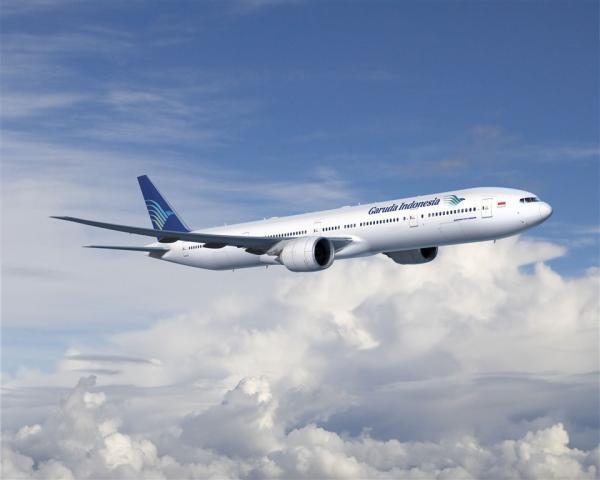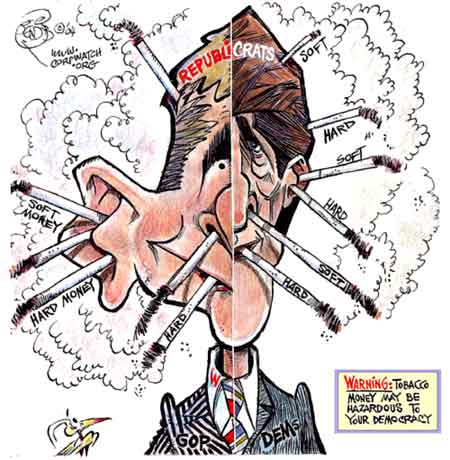 Airlines will lose at least $200m (£130m) per day in revenues as a result of the volcanic ash-linked disruption, the industry's governing body has said.
Airlines will lose at least $200m (£130m) per day in revenues as a result of the volcanic ash-linked disruption, the industry's governing body has said.The International Air Transport Association (IATA) said its members would also lose further money as a result of expensive contingency plans.
Meanwhile accountants KPMG said it expected UK flights alone to cost airlines in excess of £200m per day.
All UK flights in England and Wales were grounded on Friday.
Those airspace restrictions will remain in place until at least 0700 BST on Saturday, and widespread restrictions are now in place across Europe.
Conservative estimateBritish Airways' website said it is cancelling all its flights to and from London airports on Saturday.
The carrier said that following the lifting of flying restrictions to Scottish air space, a small number of flights from the US originally scheduled for other UK destinations will fly into Scotland overnight.
German flag carrier Lufthansa announced that all its European flights would be cancelled until at least 1100 BST on Saturday.
And Ryanair has said none of its flights in northern Europe would operate until at least Monday afternoon.
Some restrictions in Scotland are being lifted from 1900 BST on Friday, however.
The IATA said its estimate of a $200m daily loss of revenues was "initial and conservative".
"In addition to lost revenues, airlines will incur added costs for re-routing of aircraft, care for stranded passengers and stranded aircraft at various ports," its director of corporate communications, Anthony Concil, said.
KPMG was less conservative in its estimates, predicting a £200m loss in traffic revenues as a result of the UK shutdown, assuming that all ticket sales would have to be refunded to passengers.
Shares in major European airlines fell on Friday as the volcanic ash cloud spread across Europe.
British Airways saw its share price fall by 3.3%, while Air France-KLM lost 3.4%, and Lufthansa was down 4.1%.
The falls appeared to reflect concerns among investors over the impact the stoppages could have on the airline industry.
But Douglas McNeill, a transport analyst at Charles Stanley Securities, said the financial impact would be small providing the stoppages were short-lived.
"Clearly if you aren't flying, you're not generating revenue from passengers," he told the BBC.
"For a large network carrier like BA or Lufthansa you're talking about £10m a day - but that's of limited commercial significance.
"A couple of days like this won't matter too much. If it goes on for weeks, that's a different story."
Few businesses hitDr Ashley Steel, Global Chair for Transport and Infrastructure at KPMG, agreed that grounding the fleet would cost an airline like BA "tens of millions of pounds", but said that the companies needed to look at how they could better cope with such events in the future.
"These unprecedented events underline again the need for mergers and global alliances in the airline industry because truly global airlines will be much better placed to deal with the financial fallout from these types of events," he said.

The effect on the wider economy, however, is not expected to be as great.
Howard Archer, chief European economist at IHS Global Insight, said the impact on trade would be minimal assuming the stoppages were not prolonged.
"Some businesses will be affected by the inability for freight to get in and out of the country. But as long as the disruption is not too long, this should not be a major problem," he said.
Imports and exports by air freight represent just 1% of UK trade by weight, according to the think tank Oxford Economic Forecasting.
However, in value terms, around 30% of exports are transported by air - with the pharmaceutical industry particularly reliant on air freight, due to the high value and low weight of their products.
'Potential disruption'No problems have been announced yet but Chris Snelling of the Freight Transport Association said problems could emerge.
"Stuff that's being air freighted is almost always needed at short notice," he said.
"The pharmaceutical industry produces goods with short shelf lives sometimes and they need to get to the doctors and hospitals very quickly. Exporting beyond Europe has become impossible."
Mr Snelling added that manufacturing industries also relied on getting spare parts to keep factories going.
"If firms suffer problems with equipment, they may find it hard to get replacement equipment at short notice. You might see factories being restricted in what they do or potentially shutting down. You could start to see a lot of disruption."
source: BBC Retail sales volumes during March rose by 0.4% from the month before, a smaller increase than had been expected, official figures have shown.
Retail sales volumes during March rose by 0.4% from the month before, a smaller increase than had been expected, official figures have shown.

 Toyota has agreed to pay a record fine of $16.4m (£10.7m) in the US for failing to report defects in some of its vehicles' accelerator pedals.
Toyota has agreed to pay a record fine of $16.4m (£10.7m) in the US for failing to report defects in some of its vehicles' accelerator pedals. Airlines will lose at least $200m (£130m) per day in revenues as a result of the volcanic ash-linked disruption, the industry's governing body has said.
Airlines will lose at least $200m (£130m) per day in revenues as a result of the volcanic ash-linked disruption, the industry's governing body has said. The effect on the wider economy, however, is not expected to be as great.
The effect on the wider economy, however, is not expected to be as great. The Koja disturbance did not have a major effect on export-import flows in the Tanjung Priok port in North Jakarta, not far from where the incident took place, Transportations Minister Freddy Numberi said, expecting the Jakarta administration to settle the problem immediately.
The Koja disturbance did not have a major effect on export-import flows in the Tanjung Priok port in North Jakarta, not far from where the incident took place, Transportations Minister Freddy Numberi said, expecting the Jakarta administration to settle the problem immediately. Internet giant Google has reported a 37% rise in first-quarter net profit, beating analysts' expectations.
Internet giant Google has reported a 37% rise in first-quarter net profit, beating analysts' expectations. Bank of America (BoA) has returned to profit, reporting a net income of $3.2bn (£2.1bn) in the first three months of 2010.
Bank of America (BoA) has returned to profit, reporting a net income of $3.2bn (£2.1bn) in the first three months of 2010.
 National flag carrier Garuda Indonesia plans to phase out 16 old Boeing planes as part of rejuvenation of its fleet.
National flag carrier Garuda Indonesia plans to phase out 16 old Boeing planes as part of rejuvenation of its fleet.
 Chinese President Hu Jintao has resisted pressure from President Obama to raise the value of the Chinese yuan.
Chinese President Hu Jintao has resisted pressure from President Obama to raise the value of the Chinese yuan. The meeting follows widespread speculation over the possibility of a trade war this year between the two nations.
The meeting follows widespread speculation over the possibility of a trade war this year between the two nations.  Japanese carmaker Toyota is facing further safety concerns after a US consumer organisation warned customers not to buy one of its models.
Japanese carmaker Toyota is facing further safety concerns after a US consumer organisation warned customers not to buy one of its models. While the fast appreciation of rupiah against the US dollar will make imported products cheaper, analysts have warned that “too strong” rupiah would hurt Indonesia’s exports.
While the fast appreciation of rupiah against the US dollar will make imported products cheaper, analysts have warned that “too strong” rupiah would hurt Indonesia’s exports. The government is expecting a slower annual growth in exports of tobacco and its products from average 18 percent in the past three years to an average of 15 percent growth in the next five years.
The government is expecting a slower annual growth in exports of tobacco and its products from average 18 percent in the past three years to an average of 15 percent growth in the next five years.
 Lending by Chinese banks fell sharply in the first three months of the year after the government's efforts to clamp down on new loans proved successful.
Lending by Chinese banks fell sharply in the first three months of the year after the government's efforts to clamp down on new loans proved successful.







